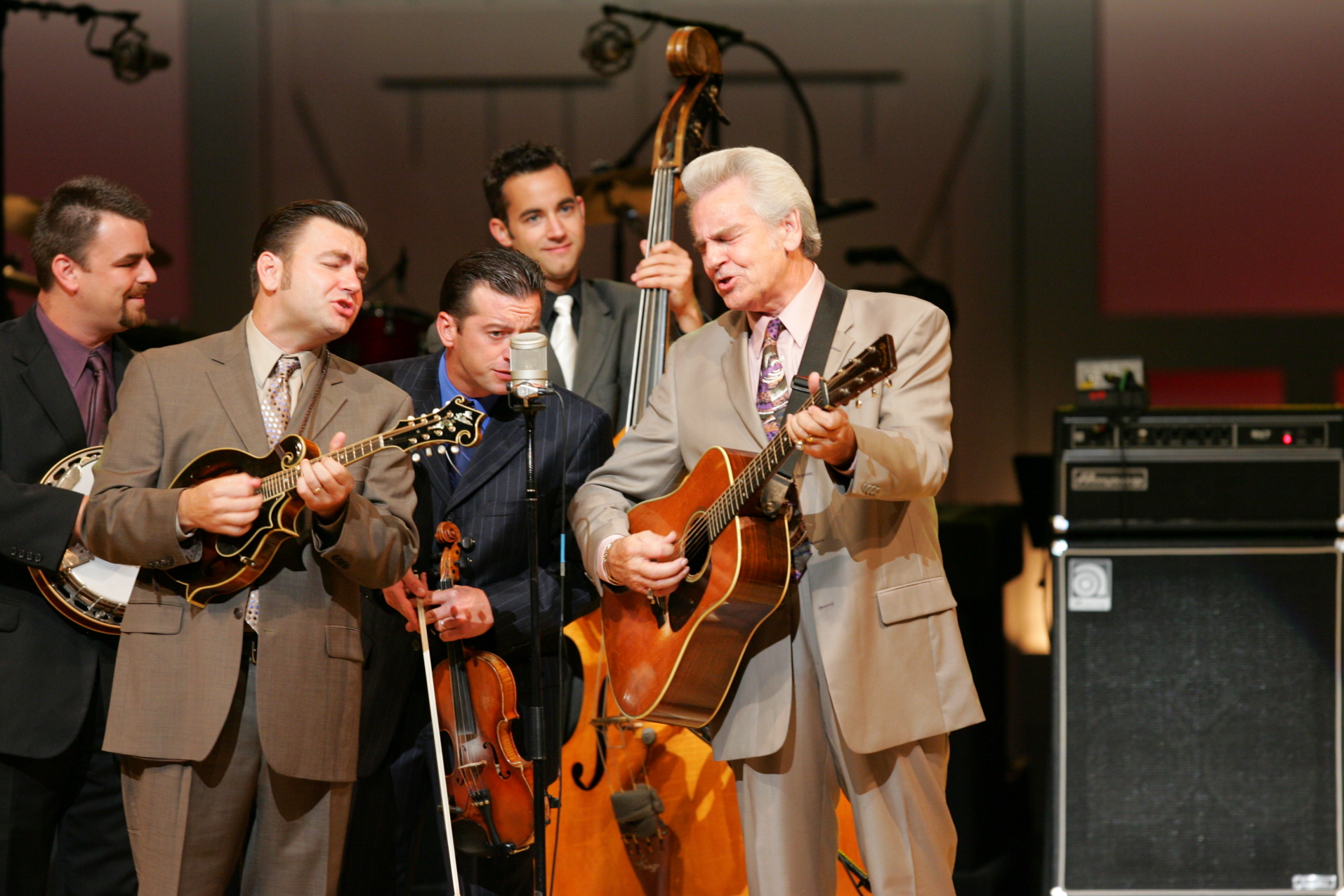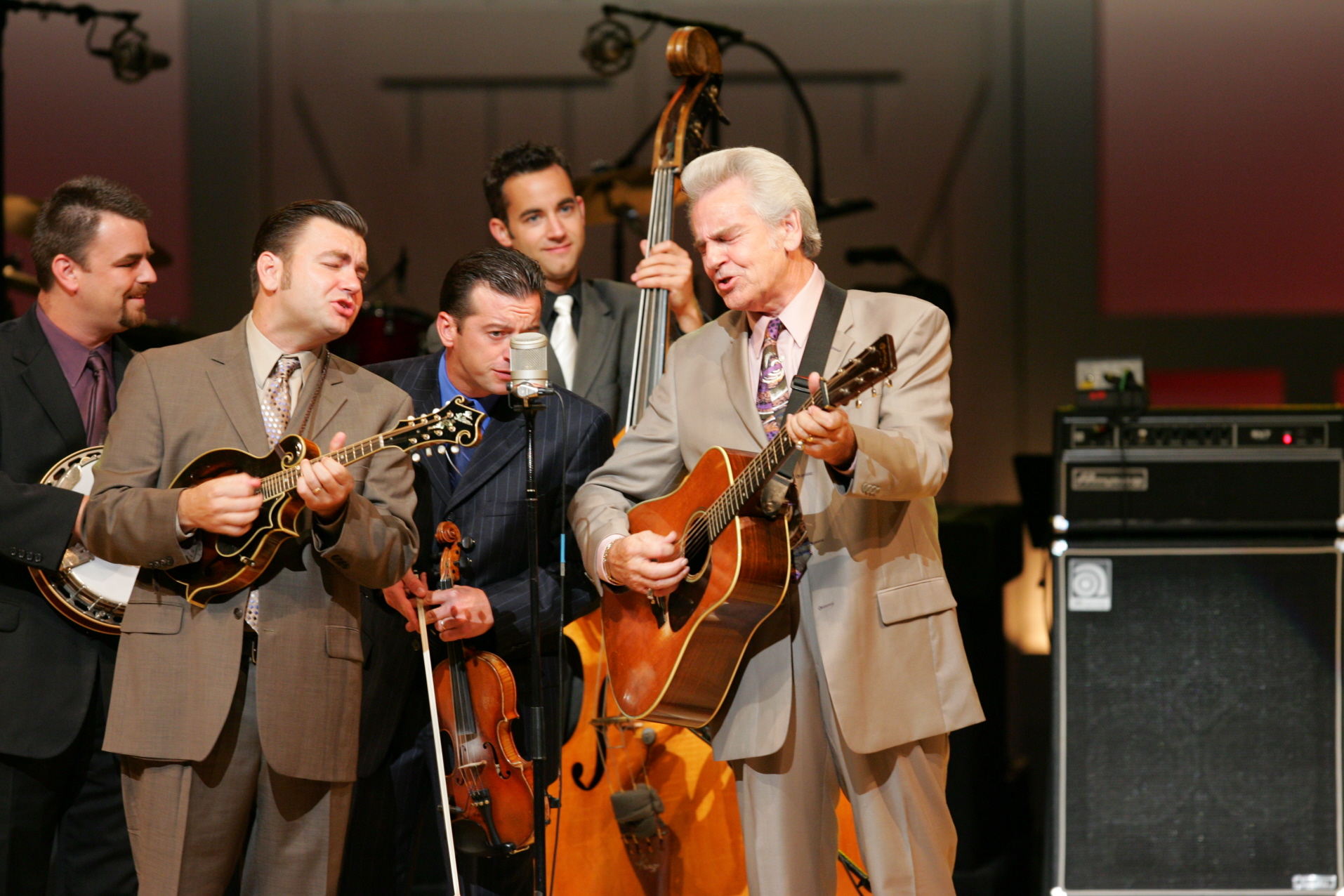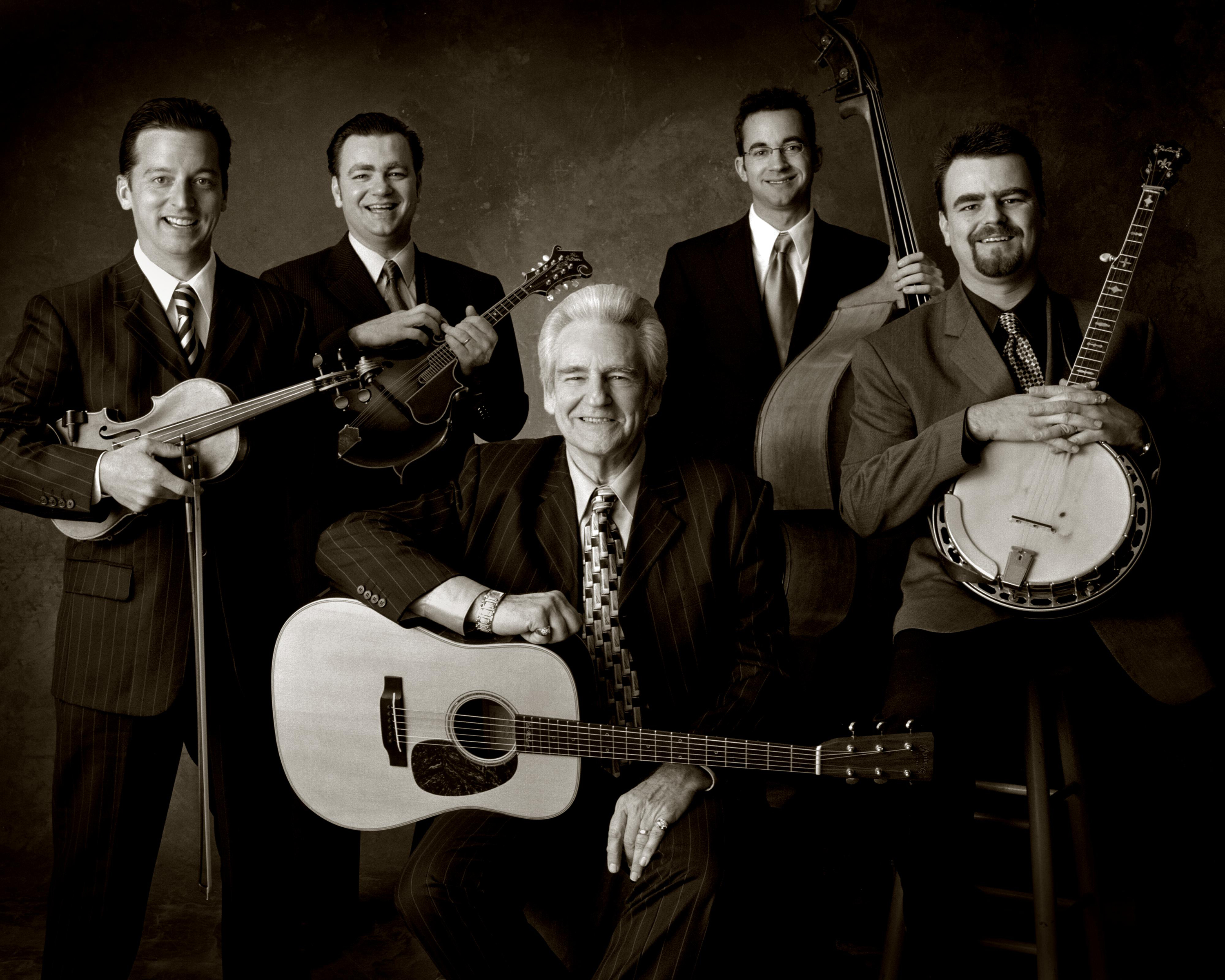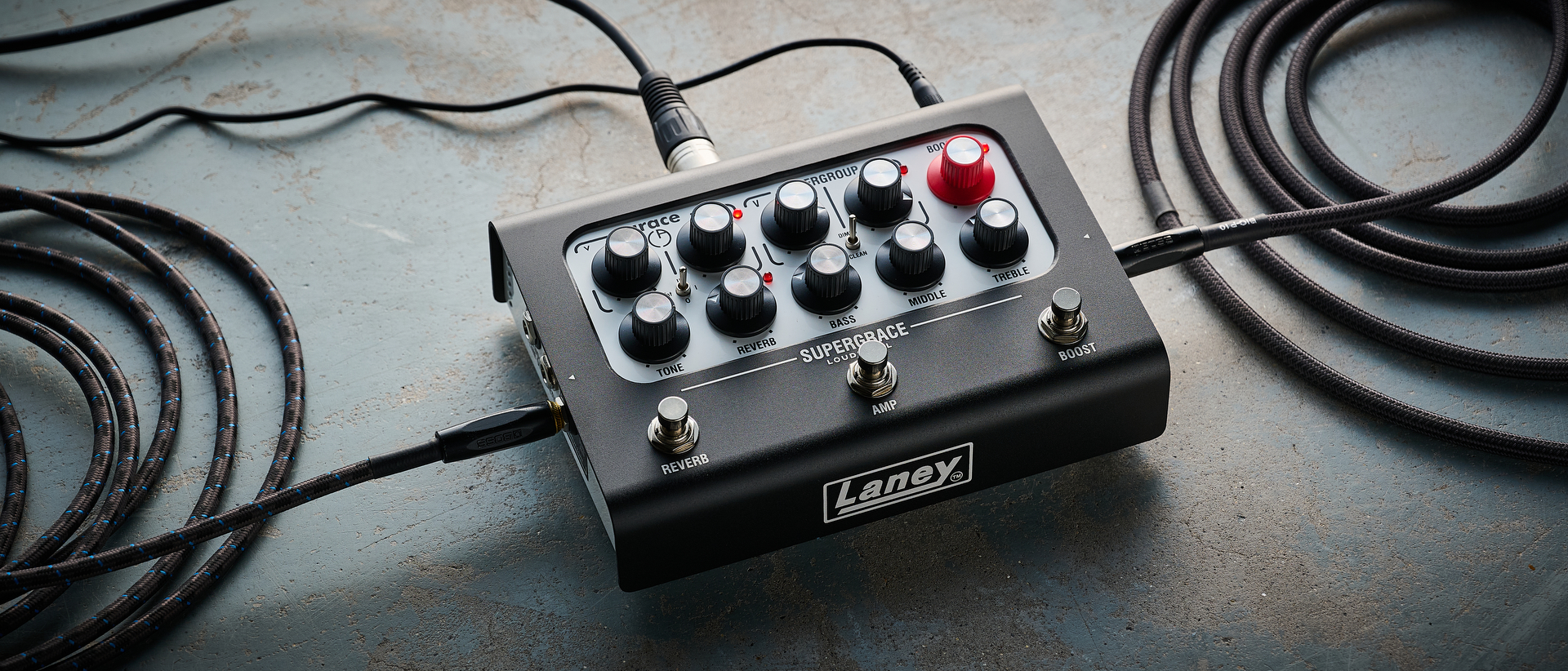Genre-Fusing Del McCoury Discusses Taking Bluegrass to Bonnaroo and Beyond
All the latest guitar news, interviews, lessons, reviews, deals and more, direct to your inbox!
You are now subscribed
Your newsletter sign-up was successful

Del McCoury has been writing, recording and performing bluegrass music for more than 50 years.
At 75, he continues touring, making albums and doing session work, bringing the traditional music that he loves to longtime fans and new generations.
McCoury sings and plays lead guitar in his band. Joining him are fiddle player Jason Carter, bassist Alan Bartram, and sons Rob McCoury on banjo and Ronnie McCoury on mandolin.
In this interview, Del McCoury discusses how he has crossed bluegrass music into new genres, how technology has affected tradition and why it makes sense to bring bluegrass to rock's concert and festival scenes.
GUITAR WORLD: Very few artists can say they have a foot in every genre of music. Are you able to stand outside of this and realize how much you've accomplished and the impact you have?
Not really, but it is kind of amazing. I’ve played with major jam bands like Phish, the String Cheese Incident and Leftover Salmon. We’ve played venues together, and the reason we’ve done that, I think, is because all music is related. Music is music. There’s good and bad, and that’s subject to taste. There are so many things I like that I heard through the years.
I love listening to Bing Crosby and Frank Sinatra; they were big when I was a kid. I was interested in Earl Scruggs and the banjo style he played. A lot of times these bands have been to my shows, and they call me and want us to play with them. That’s the way I get to be around all genres of music.
All the latest guitar news, interviews, lessons, reviews, deals and more, direct to your inbox!
When somebody calls me to record and I’m not sure I can do it, I go and try and see what happens. I’m always up for a challenge. I record with a lot of different people and it’s so much fun. I never have a set list onstage. I never know which songs I’m going to do. People request songs, and I try to get new songs if we’re promoting a new record, but mostly I play requests. I’ve got four guys with me, they do their thing, and when someone makes a request, if I’m lucky I remember the words! Otherwise, I’ll just take a solo while I confer with someone in the band about the next verse, and sometimes they give me the verse I just sang!
You’ve played every festival from Bonnaroo to Jazz Fest. When you look at someone like Johnny Cash, it took Rick Rubin to put him in front of young audiences and they adored him. Is there a tendency to underestimate the taste of the general public?
Exactly. You said it exactly right. I wonder the same kind of thing over and over. It’s exciting to hear something new and different, and the average person feels the same way.
I remember the first time we played Bonnaroo. We were in California, and we had to go home and then travel there the next day. We lease our buses now and we were playing on Sunday. We were really worried about traffic and there was none. The road was open because everyone had gotten there on Thursday. I thought, Will they even know what we do? They got so loud; people were screaming requests, which surprised me. Somebody wrote a request down on a piece of cardboard with a Sharpie and held it up, and from there, people began holding up signs with their requests. That was my first experience with Bonnaroo, and it was fun. We played it every other year.
After all these years, are there times when you still feel you’re rediscovering the instruments?
Yeah, I sure do. You keep learning forever, you never stop. I learned G, C and D when I learned to play, and every song had that. That was bluegrass in the 1970s. Then I started doing different things than what most bluegrass bands do. This interviewer said to me once, “Most bluegrass songs have three or four chords, and one of yours has seven. What you think of that?” I said, “I never thought about it. I recorded it because I liked it, and the only way to do it was with seven chords in it.”
Bluegrass people are often purists, and you have to grow. As a kid, the bluegrass banjo — especially Earl Scruggs’ three-finger playing style — excited me the most, but as I grew older my tastes widened. Everyone gets something from somewhere, and again, all music is related.
Bluegrass players are known for jam sessions. Do they still go on? Are musicians losing that because of technology and sending files?
I wonder about that. Years ago we would jam all night and do a show the next day because we love to play. You don’t see that as much as you used to. There are a lot of bluegrass fests, but I don’t see especially professional musicians getting out there after the show and playing.
I used to see Bill Monroe do that when he was in his 60s. We played in Camp Springs, North Carolina, at a bluegrass fest one Labor Day weekend. One night it was real dark, they didn’t light up the places like they do now, and I was jamming with some guys. A guy came up behind me and said, “Don’t you think it’s time for you to be in bed?”
Then he played a chord on his mandolin and I knew who it was — it was Bill. I left around 4 or 5 o’clock in the morning and he was still playing! You’re right, we used to do that. I don’t do it as much now because I need some rest, but jamming used to be the normal thing. We all looked forward to playing late at night with everybody else.
Read more of Del McCoury’s interview here.
Alison Richter interviews artists, producers, engineers and other music industry professionals for print and online publications. Read more of her interviews right here.


Alison Richter is a seasoned journalist who interviews musicians, producers, engineers, and other industry professionals, and covers mental health issues for GuitarWorld.com. Writing credits include a wide range of publications, including GuitarWorld.com, MusicRadar.com, Bass Player, TNAG Connoisseur, Reverb, Music Industry News, Acoustic, Drummer, Guitar.com, Gearphoria, She Shreds, Guitar Girl, and Collectible Guitar.
